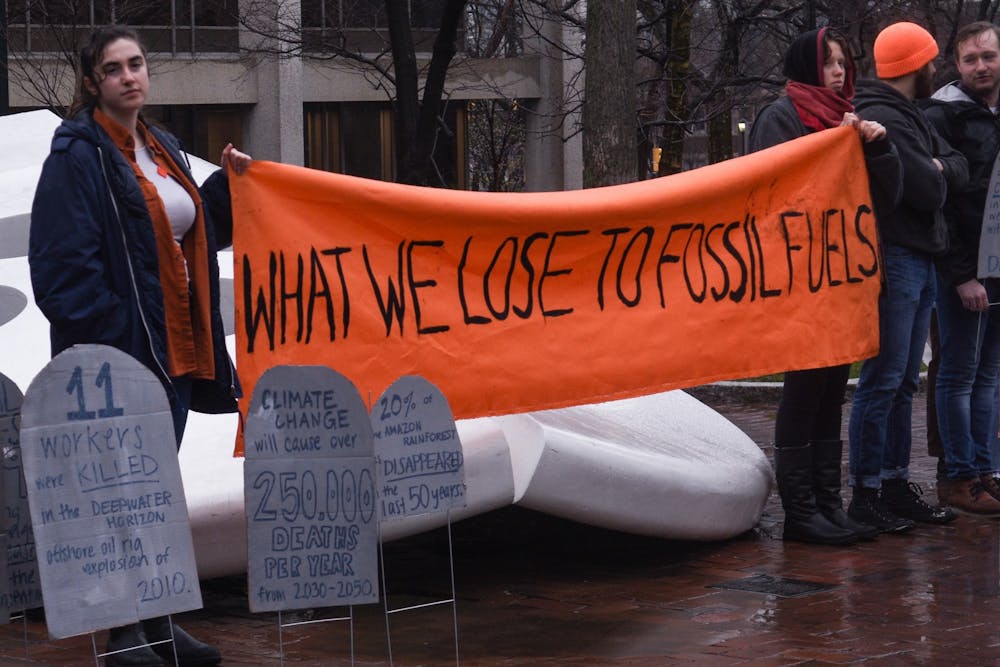
Four weeks ago, following a surge of violent attacks against Asian Americans fueled by the COVID-19 pandemic, University leadership sent the Penn community an email entitled “A Message to the Penn Community Regarding Violence and Anti-Asian Hate Incidents.” The actual body of the email was in line with what has become boilerplate for institutions during a time of heightened discriminatory violence and other social issues: a statement condemning such actions and the linking of mental health resources. While this message was better than nothing, it failed to outline any structural changes the University would implement to combat anti-Asian sentiments within our community, especially when there was a very clear opportunity for Penn to do so with the Asian American Studies Program. Penn must do more than release these inadequate messages, and it must be transparent in how the University is responding to impactful issues raised by members of the Penn community.
Two days after Penn’s message on Asian American violence was released, it was reported that Asian American Studies professor David Eng would be leaving Penn, citing concerns over a lack of support from administration and a reluctance to hire new faculty for ASAM. This was especially concerning given that only three tenured faculty remain within the program after ASAM Director Grace Kao left Penn four years ago. Kao has yet to be replaced. Prompted by this announcement, and the increase in violence against the Asian community, a petition to retain Eng drafted by the ASAM Undergraduate Advisory Board garnered almost 800 signatures from the Penn community.
It was only several weeks later that I found out in an Undergraduate Assembly meeting with the ASAM UAB that Dean Steven Fluharty of the School of Arts and Sciences had initiated a search for new faculty hires for ASAM. While considerably more effective in showing support for the Asian community, the dean's statement on this search did not find its way into my inbox like the previous message. And after reading the statement, I saw that no mention was made of the UAB’s petition or the departure of Eng. This mixture of inconsequential and non-communicative messaging effectively does very little to show that Penn values its Asian students. For many minority students, minority studies programs can be essential for forming community and navigating a predominantly white space like Penn, especially in the face of recent events that devalue our very existence. The University’s messaging fails to recognize this connection.
Diversity- and equity-focused initiatives cannot simply be reduced to providing support for marginalized groups post-trauma. Rather, Penn must examine the ways in which it is responsible for perpetuating biases against such communities. Time and time again, students have been told “We hear you — we see you” but have yet to experience the changes that should come from that recognition. This issue extends beyond Penn’s minority communities and can be applied to any structural change students are pushing for within the University.
Penn’s investment in fossil fuels has been a longstanding issue for the Penn community, as evidenced by the tireless work of Fossil Free Penn, Student Sustainability Association at Penn, and other climate-focused organizations. Last week, my inbox received yet another “Message to the Penn Community …” this time on climate change. The message was conveniently timed to be released just hours before a Faculty Senate Climate and Sustainability Seminar co-sponsored by the UA was scheduled to take place. In the announcement, Penn administrators detailed their net-zero emissions plan, which they hope to achieve by the year 2050. A student later said that this plan put Penn in line with oil company BP. The plan, centered on offsetting fossil fuel investments with clean energy, only works because large energy companies historically do not release their emissions data in full. Additionally, the plan makes no mention of Penn’s investment in the fossil fuel industry and does not reveal any intent to divest from them, which is exactly what student activism and organizing efforts have been centered around. Thus, the message was just a convenient way for the Penn administration to place the accountability on their investment partners to be more climate friendly, rather than examine how we as an institution engage in practices that are harmful to the environment.
Instead of telling students that their concerns are heard and thoughts valued, show us. Take action. Fund our minority studies programs. Divest from fossil fuels. Students understand such projects take considerable time, and we do not expect overhauling to occur overnight. And while the University may be making efforts towards resolving these issues, they do not communicate these projects to students transparently. As a result, we are left with muddied messaging that takes accountability away from Penn and resorts to measures that fail to do anything of substance. Students see through this. So please, no more statements. We’d prefer action instead.
ALEX EAPEN is a first year in the College from Elkridge, Md. His email is aeapen@sas.upenn.edu.
The Daily Pennsylvanian is an independent, student-run newspaper. Please consider making a donation to support the coverage that shapes the University. Your generosity ensures a future of strong journalism at Penn.
Donate







